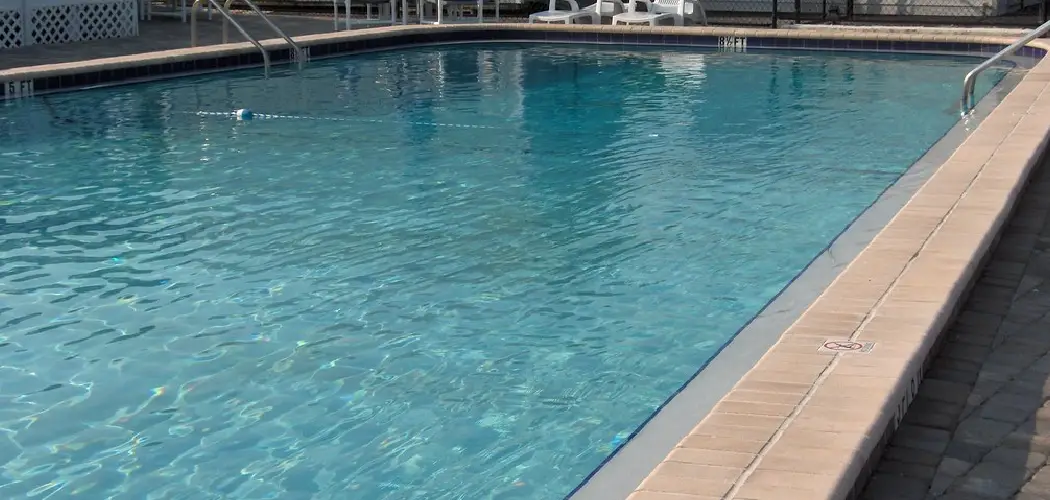Maintaining clean and crystal-clear swimming pool water is a top priority for pool owners, and while chlorine is a widely used chemical for water treatment, some individuals may prefer alternative methods for disinfection and sanitation. Whether due to concerns about chlorine’s effects on health or skin sensitivities, it’s entirely possible to achieve and maintain a sparkling pool without the use of chlorine.
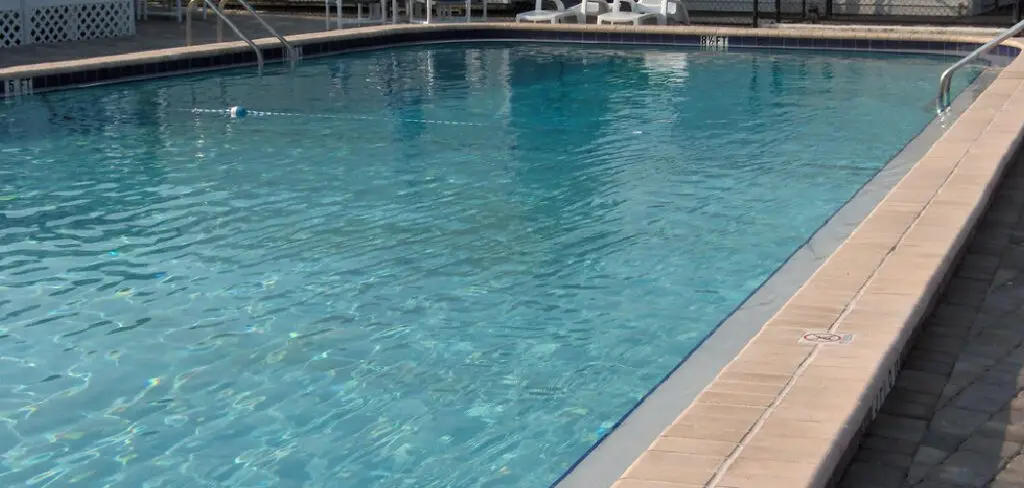
In this article, we will explore effective strategies of how to clean swimming pool water without chlorine. From considering the benefits of chlorine-free systems to understanding the role of natural pool treatments, we’ll provide you with the knowledge and techniques needed to enjoy a refreshing and chemical-free swimming experience while ensuring that your pool remains a safe and healthy aquatic environment.
The Importance of Clean Pool Water in Ensuring an Enjoyable Swimming Experience
Swimming is one of the most popular recreational activities, especially during the summer months. It provides a refreshing break from the scorching heat and is a great way to stay active and healthy. However, as much as we enjoy swimming, it is important to remember that pool maintenance plays a crucial role in ensuring an enjoyable experience.
One of the key factors in pool maintenance is keeping the water clean and free from any harmful contaminants. Chlorine has long been used as the go-to chemical for cleaning pool water, but with growing concerns over its adverse effects on health and the environment, many people are now seeking alternative methods to keep their pools clean.
The Risks of Using Chlorine in Pool Water
Chlorine is a powerful disinfectant that effectively kills bacteria, algae, and other harmful microorganisms present in pool water. However, it also releases harmful byproducts such as chloramines and trihalomethanes when combined with organic matter like sweat or urine. These chemicals can cause skin and eye irritation, respiratory problems, and even contribute to the formation of cancer-causing compounds.
Moreover, chlorine is a harsh chemical that can damage pool equipment and surfaces over time. This not only adds to the cost of maintenance but also affects the overall aesthetic appeal of the pool.
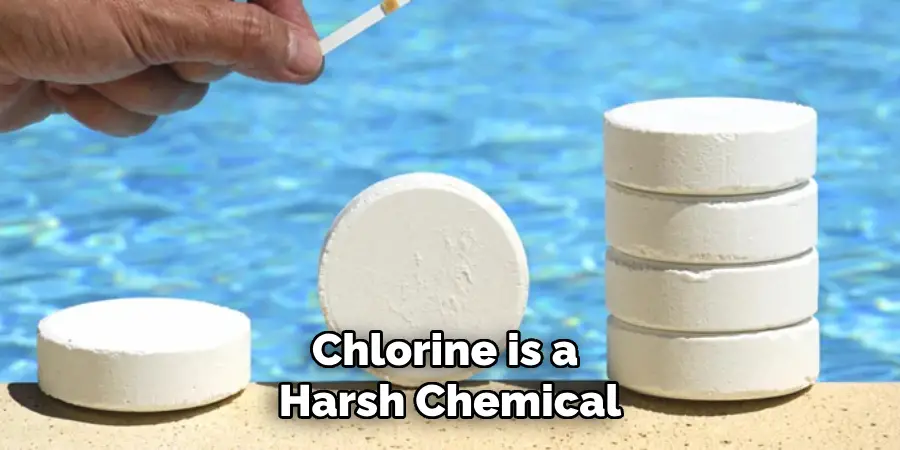
10 Methods How to Clean Swimming Pool Water without Chlorine
1. Backwashing
Backwashing is a method of cleaning your swimming pool water without using chlorine. It involves reversing the flow of water through the filter system to flush out any dirt and debris that has built up in the filter.
This process helps to keep your pool water clean and clear by removing any impurities that may have accumulated over time. It also helps to extend the life of your filter system as it prevents it from becoming clogged with dirt and debris.
2. Ozone Treatment
Ozone treatment is another method for cleaning your swimming pool water without using chlorine. Ozone is a powerful oxidizer that can help to kill bacteria, viruses, and other pathogens in your pool water. It can also help to reduce unpleasant odors caused by organic matter such as sweat, urine, and body oils. Ozone treatment is an effective way to keep your swimming pool water clean and safe without having to use harsh chemicals like chlorine.
3. UV Light
Using ultraviolet (UV) light is another method for cleaning swimming pool water without using chlorine. UV light works by breaking down the DNA of harmful microorganisms such as bacteria and viruses, rendering them unable to reproduce or cause harm in your pool water.
UV light systems are relatively low maintenance compared to other methods of cleaning swimming pools, but they do require regular bulb changes in order to remain effective at killing microorganisms in your pool water.
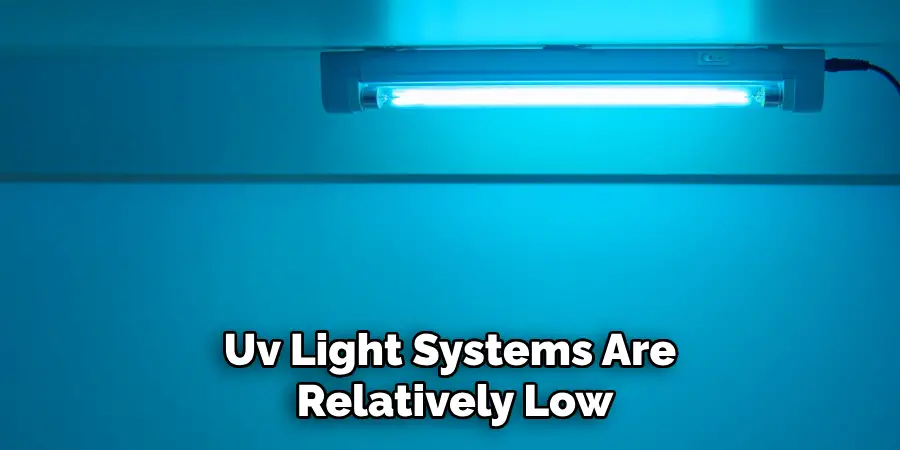
4. Copper Ionization
Copper ionization is a chemical-free method for cleaning swimming pool water without using chlorine or other harsh chemicals. This process uses copper ions which are released into the pool water, where they bind with bacteria and algae cells, destroying them on contact while leaving no residuals behind in the pool water itself.
Copper ionization has been shown to be very effective at killing harmful microorganisms in swimming pools while also being gentle on the skin and eyes when used properly.
5. Saltwater Chlorinator
A saltwater chlorinator is a device that converts salt into chlorine which then gets released into the pool water where it kills bacteria and algae cells on contact while leaving no residuals behind in the pool itself.
A saltwater chlorinator can be an effective way of keeping your swimming pool clean without having to use harsh chemicals like chlorine or bromine, as it produces its own chlorine from salt, which is much gentler on skin and eyes than traditional chlorine tablets or granules used for sanitizing pools manually.
6 . Automatic Pool Cleaners
Automatic pool cleaners are devices that use suction power to remove dirt, debris, leaves, twigs, bugs, etc., from your swimming pool floor and walls automatically without requiring manual intervention from you or anyone else who may be using the swimming area at any given time during its operation hours.
The automatic cleaner will move around the entire surface area of the swimming area, collecting all sorts of dirt particles that would otherwise need manual removal if left unchecked over time eventually leading up to dirty-looking murky waters all around.
7 . Enzymes Treatment
Enzyme treatments are chemical-free solutions used for cleaning up pools naturally by breaking down organic matter such as sweat , urine, body oils, etc. These enzyme treatments work by releasing special enzymes that attach themselves to these organic matter thus breaking them down faster than usual thus making sure that all these materials get removed quickly before they start affecting other parts of the ecosystem.
As this process doesn’t involve any kind of harsh chemical, it makes sure that there are no toxins present inside our bodies after we get out from our swims inside our own pools.
8 . Mineral Purifier Systems
Mineral purifier systems are quite similar to saltwater chlorinators, but instead of producing their own chlorine, these systems produce minerals such as silver ions, copper ions, etc which act similarly to disinfectants helping us keep our pools clean & safe for everyone involved.
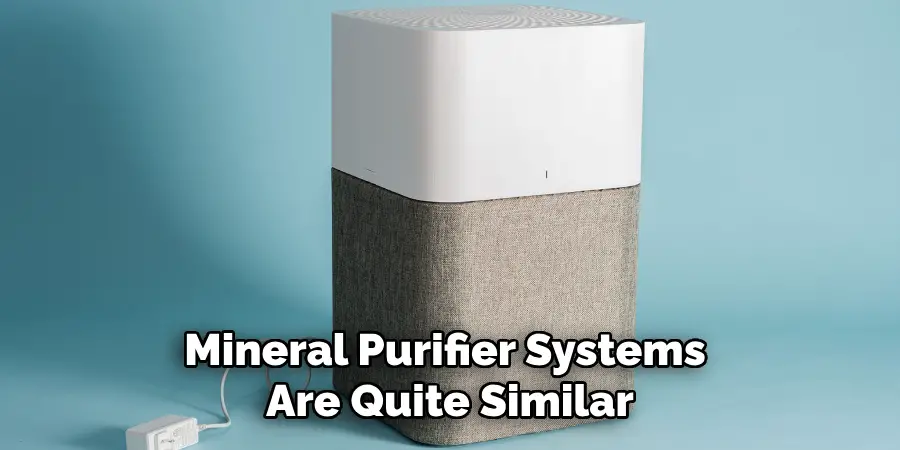
These mineral purifiers don’t leave behind any kind of residue after they finish their job making sure that none of us face any kind of irritation caused by to presence of too many chemicals within our bodies after taking a nice refreshing dip inside our private pools!
9 . Solar Pools Covers
Solar Pool Covers are transparent sheets made out of polyethylene material that cover up the entire surface area above ground level providing us with protection against loss due to evaporation & heat loss during night times when temperatures drop drastically outside!
During the daytime, these covers trap solar energy & heat up waters below them thus helping us save money spent on electricity bills & maintain temperature levels throughout the day & night times! These covers also prevent the entry of dust particles & insects inside our private pools thus ensuring hygiene standards remain intact at all times!
10. Nanotechnology
Nanotechnology is an emerging field that has shown promising results in cleaning swimming pool water without using chlorine. It involves the use of tiny particles, known as nanoparticles, which can efficiently remove dirt and impurities from pool water without the need for harsh chemicals.
These nanoparticles are designed to have a high surface area-to-volume ratio, making them more effective at capturing and removing contaminants from the water. Nanotechnology is still being researched and developed for use in pool cleaning, but it has the potential to revolutionize the way we clean and maintain our swimming pools in the future.
Common Mistakes to Avoid When Cleaning Your Swimming Pool
Cleaning a swimming pool is an important task to ensure that the water stays clear and safe for use. While chlorine has been the go-to chemical for disinfecting pools, many people are now looking for alternative ways to clean their pool without using chlorine.
1. Not Testing Water Chemistry Regularly
One of the most important steps in maintaining a clean pool is testing the water chemistry regularly. This includes checking the pH level, alkalinity, and calcium hardness. Failure to do so can result in imbalanced water chemistry which can lead to cloudy or algae-filled water. It is recommended to test the water at least once a week and make necessary adjustments.
2. Not Brushing the Walls and Floor
Some pool owners may think that just adding chemicals is enough to keep their pool clean. However, brushing the walls and floor of the pool is also crucial in preventing algae build-up and removing debris. It is recommended to brush at least once a week or more if the pool gets heavy usage.
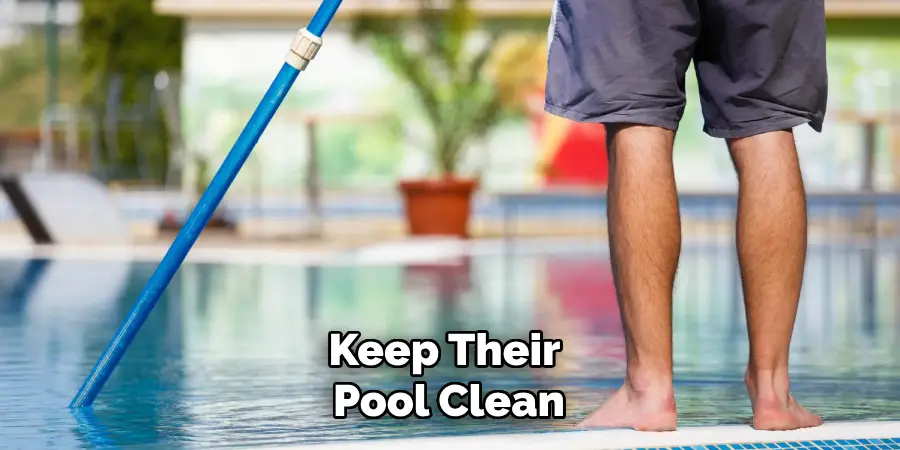
3. Not Running the Filter Long Enough
The filter plays a vital role in keeping your pool clean by trapping dirt and debris. But not running it long enough can lead to a dirty pool. It is recommended to run the filter for at least 8-12 hours a day, depending on the size of your pool. This will ensure that all the water in your pool goes through the filtration system.
Conclusion
In conclusion, the most important aspect of cleaning swimming pool water without chlorine is to remember that chemical-free and natural methods are not only more environmentally friendly but also effective. By following these simple steps you can easily clean your swimming pool water without using chlorine in it. Not only will this save your pocketbook from having to buy expensive pool chemicals, but it will also make sure that your environment isn’t affected by harsh chemical compounds. So take action now and learn how to clean swimming pool water without chlorine! Enjoy a healthier, cleaner and safer home and swimming experience with the help of natural alternatives.
About
Outdoor Fixes is a distinguished figure in the world of Diy design, with a decade of expertise creating innovative and sustainable Diy solutions.
His professional focus lies in merging traditional craftsmanship with modern manufacturing techniques,
fostering designs that are both practical and environmentally conscious. As the author of diy,
outdoorfixes delves into the art and science of outdoorfixes-making, inspiring artisans and industry professionals alike.
Education RMIT University
(Melbourne, Australia) Associate Degree in Design (Outdoor Fixes) Focus on sustainable design, industry-driven projects,
and practical craftsmanship. Gained hands-on experience with traditional and digital manufacturing tools, such as CAD and CNC software.
Nottingham Trent University
(United Kingdom) Bachelor’s in outdoorfixes.com and Product Design (Honors) Specialized in product design with a focus on blending creativity with production
techniques. Participated in industry projects, working with companies like John Lewis and Vitsoe to gain real-world insights.
Publications and Impact
In diy, Outdoor Fixes his insights on indoor design processes, materials, and strategies for efficient production.
His writing bridges the gap between artisan knowledge and modern industry needs, making it a must-read for both budding designers and seasoned professionals.

